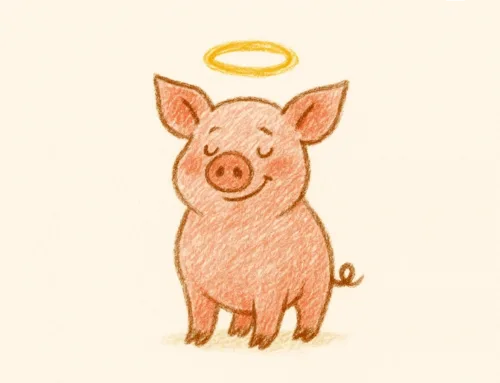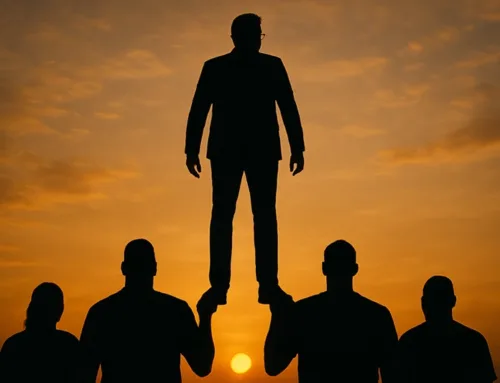Reading Walter Isaacson’s best-selling authorised biography of Steve Jobs, released just after Jobs’ death in early October, 2011, was a surprise for me. Over the years, I’d had heard through the media (like everyone) of Jobs’ arrogance, but I figured he certainly earned some bragging rights. My youngest son got Isaacson’s book at Christmas time and he read out, incredulously, a few of the more colourful tidbits about Jobs’ behaviour in the work environment. Even those I took in stride. Then I read the book.
This will sound mean-spirited, but I think Steve Jobs’ genius was extremely narrow—maybe not genius at all. He was also an asshole, at least professionally, according to many who worked for or with him, and by his own admission:
“I’m a recovering assaholic. So I could recognise that in Steve.” – Jean-Louis Gassée, Apple’s senior executive in France in the 1980s
“So you’ve uncovered the fact that I’m an asshole. Why is that news?” – Steve Jobs to Andy Serwer, Managing Editor of Fortune Magazine, in an exchange where Jobs was trying to convince Serwer not to run a story
As detailed by Isaacson, Steve Jobs was a petulant tyrant on an almost daily basis, manipulative megalomaniac, intellectual bully, bald-faced liar, blatant stealer of others’ ideas, betrayer of close friends, self-serving revisionist and constant “reality distortion field” generator. Uninterested in charitable give-back of any sort. PT Barnum of the Digital Age. His emotional immaturity, hubris and neurotic eating habits/disorders likely contributed to the advance of his initial early-stage cancer beyond the point of recoverability.
Tina Redse, one of Jobs’ former girlfriends has mental health education and does not have an obvious reason to hurt Jobs. She believes he had Narcissistic Personality Disorder. Read the long list of symptoms [1]—it certainly fits.
But the world has always forgiven its geniuses with asshole-ish tendencies. In history, look to Thomas Jefferson, Beethoven and Sir Isaac Newton. A modern fictional equivalent might be Dr Gregory House [2]. But in these cases, we’re forgiving people who are new-to-the-world inventors, creators of music whose brilliance is evident centuries later, theoretical scientists who advanced our understanding of the universe, and serial savers of human lives. Steve Jobs was none of these, so we must be forgiving him for something else: Jobs and his two companies, Apple and Pixar, were—and are—financially successful in the extreme.
The real geniuses at Apple were the designers and the engineers, people like Steve Wozniak, Burrell Smith and Andy Hertzfeld in the very early days. People like Bob Belleville and the entire MAC development team in the 1980s, and more recently, people like designer Jony Ives. And at Pixar it was John Lasseter.
Job’s is often cited for genius in leadership—even by Isaacson. He clearly had a gifted ability to cat-herd the menagerie of geeky savants that Apple attracted or pillaged from elsewhere, and to commercialise their combined efforts. His was a Darwinian leadership style, best illustrated by the development of the MAC. For the MAC team, Jobs picked the top engineers and programmers at Apple, so he was starting with the best of the best. Then he cajoled, badgered and humiliated them into doing things even they didn’t think could be done. He replaced those who struggled under the unbelievably intense pressure with the “next best”, if they didn’t exit on there own. It became Apples biggest computer technology success. But I don’t believe Jobs would have succeeded leading in any other business category, or in many other time periods [3]. He was incapable of learning from his own mistakes (as all great leaders must)—he was helped in this regard by the few Apple board members he fleetingly respected or was forced to defer to.
If Jobs was a genius in any one particular area, it was probably marketing. He had a vision of where technology could go before others, partially because he was the one making it go there. He intuited Apple’s brilliant end-to-end integration cum digital hub philosophy—while the iPod, iPhone and iPad were still in development. In the early days, he understood that getting consumers to embrace technology is all about making the interface simple and beautiful, which was the MAC’s greatest achievement. Consumers willingly pay more for Apple products because they are easier to use, look more beautiful and work together better than any other technology brand out there.
For the marketing purists: Yes, Jobs eschewed consumer research, but in the context of new-to-the-world (or almost new) technology products, this contrarian approach can actually work.
So all in, does it really matter that Steve Jobs was an asshole? The utilitarian answer is “No”. The point of business, or for that matter, capitalism, is not to be nice. It’s to win and accumulate wealth. Our quiet collective hope is that an individual’s success and accumulation of wealth benefits more than just the individual. In fact, a recent article in the New York Times [4] reminds us that “capitalism is predicated on bad behaviour.” It also cites research which indicates corporate managers are four times more likely than the general population to be clinically defined as psychopaths.
I believe the world needs more assholes like Steve Jobs. Definitely more like Sir Isaac Newton and Beethoven. Acknowledging that this is easy for me to say, the good Jobs gave all of us outweighs the bad he gave some of us. It helps to understand people like Jobs for what they are and aren’t, because they really can be managed on their downside. But please, can we all agree to not fall for the silly Jedi mind tricks [5]?
- Narcissistic Personality Disorder – as defined in Wikipedia.
- Lead character in House, critically-acclaimed TV medical drama produced by NBC/Universal et al, 2004 to 2012.
- Malcolm Gladwell explains the success of Steve Jobs and (more fully) Bill Gates intriguingly in his 2008 book, “Outliers: The Story of Success”
- “Capitalists and Other Psychopaths“, The New York Times, May 12, 2012
- In his late teens, Jobs developed the “skill” of staring fiercely at people without blinking. This was to communicate passion and intensity, and to unsettle his target or opponent. It is mentioned more than a dozen times in Isaacson’s biography. I can’t believe otherwise intelligent people fell for this.
- Jonathan Mak Long is a 20-year-old communication design student in Hong Kong. He created this graphic tribute just after Steve Jobs’ death. It went viral, at least in design & communication circles. Within months, this resulted in Long being the core designer of Coca Cola’s global “Open Happiness” campaign. Do you think this kid has a bright future?





Not that we needed confirmation, but here’s what Steve Jobs’ first daughter writes about her father in ‘Small Fry’: https://www.nytimes.com/2018/08/23/books/steve-jobs-lisa-brennan-jobs-small-fry.html